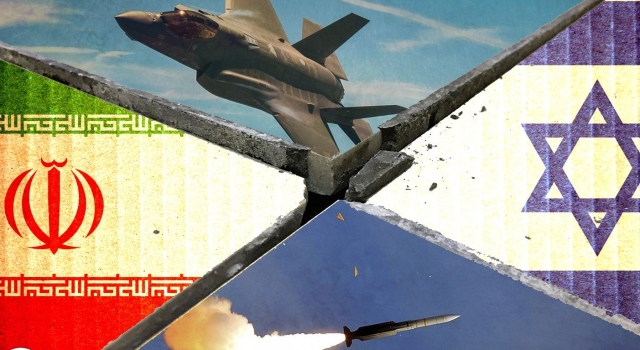In a stunning revelation, officials within the American-led coalition supporting Israel have issued a stark warning to Jerusalem, urging caution in response to potential Iranian provocations. The advisory aims to prevent an escalation that could ignite a full-scale regional conflict.
Prime Minister Benjamin Netanyahu, unyielding in his stance, declared on Sunday, “Anyone who hurts us will pay a very heavy price.” His statement underscores Israel’s high state of readiness, both on the ground and in the air, signaling the nation’s preparedness for any threat.
Strategic Options on the Table
Israel's response to an Iranian attack is multifaceted, ranging from limited strikes on proxy militias to direct assaults on Tehran’s nuclear facilities. Former Israeli intelligence official Avi Melamed, who served as an advisor to Ehud Olmert, emphasized that any Israeli retaliation would be proportional to Iran's aggression.
Melamed highlighted the recent Israeli airstrike on Yemen’s Hodeida port city, a powerful demonstration of Israel's capability to inflict significant damage. “Any significant Iranian strike on Israel will likely be met with a response of a similar scale in a show of shock and awe against Iran and its hegemonic vision,” he asserted.
As I told @wolfblitzer — the only way to deescalate in the Middle East is to threaten Iran with a massive escalation.
— Michael Oren (@DrMichaelOren) August 7, 2024
If Western countries want to avoid a regional war, they should say unequivocally to Iran: if you touch our ally Israel, you will pay a prohibited price. pic.twitter.com/LUOuoS3FuT
Calculated Retaliation and Strategic Messaging
Israeli leaders have been vocal about their strategic target lists, executing preemptive strikes in Syria and Lebanon. This serves as a clear message: Israel is prepared for a rapid and dynamic shift from defense to offense.
“The scope and impact of the Iranian response will dictate the next phase in the Middle East conflict,” Melamed explained. A limited Iranian attack would likely result in a contained Israeli counterstrike. Conversely, a large-scale and successful Iranian assault would provoke a devastating Israeli retaliation, targeting Iranian infrastructure and proxy-held territories across the region.
International Insights and Military Preparedness
Former CIA Director General David Petraeus echoed these sentiments in an interview with Iran International. He emphasized that Israel’s response would be contingent on the severity of Iran’s attack. “If the IRGC were to destroy critical infrastructure, Israel would have to respond in a very massive way,” Petraeus noted, drawing parallels to the extensive damage inflicted on Yemen’s Hodeidah port following the Houthi drone attack on Tel Aviv.
As stated yesterday, Hezbollah appears to be growing impatient with Iran, who according to some is now Reconsidering any kind of Major Retaliatory Strike against Israel due to Fears of a Regional War, all while Hezbollah has been planning and preparing for the Order to launch… pic.twitter.com/VEFPPyeP1d
— OSINTdefender (@sentdefender) August 7, 2024
The IDF’s airstrikes on Isfahan earlier this year, targeting a city integral to Iran’s nuclear program, demonstrated Israel’s willingness to strike critical sites, albeit with caution. An unnamed Western security official revealed that Israel has been conducting air force drills aimed at preparing for such high-stakes operations.
Risk and Reward: Navigating Potential Failures
The complexity of targeting Iran’s deeply buried nuclear facilities poses significant risks. A failed attack could be a humiliating setback for Israel, potentially emboldening Tehran. Alternatively, Israel could opt for a more measured response, targeting Iranian-backed fighters in Syria, Lebanon, or Iraq. However, such a limited strike might be perceived as insufficient by Israeli leadership.
A strategic midpoint could involve hitting key military targets like missile silos or naval bases, a move that carries its own risks of further escalation.
And another Night passes without an Iranian Attack against Israel.
— OSINTdefender (@sentdefender) August 8, 2024
Geopolitical Dynamics and U.S. Support
In the shifting geopolitical landscape, Netanyahu is believed to feel emboldened by recent developments, particularly Joe Biden’s withdrawal from the presidential race. “[Biden] told him not to respond too harshly to Iran’s attacks. And Iran knew this, which is why they exploited the situation to attack Israel,” an American official disclosed to The Telegraph.
Despite these dynamics, Netanyahu is confident in unwavering U.S. support. “His true agenda is to support Israel fully. And he has done so for decades. Netanyahu knows this, which is why he’s being more bold and feels confident that he can attack Israel’s enemies and still have the full support of the U.S.,” the official concluded.
As tensions simmer, the world watches closely, aware that any misstep could plunge the Middle East into unprecedented turmoil. The balance of power hangs by a thread, with every decision carrying profound consequences for the region’s future.


